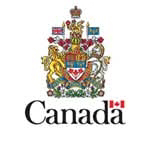The Great Crack-Up: Analyzing the Evolution of Western Political Dynamics.
Recent developments within Canadian politics, epitomised by Justin Trudeau's resignation, indicate a more significant trend rather than isolated incidents. These events reflect a substantial disintegration of the long-standing consensus that has characterised Western political discourse for several decades. This consensus, which has traditionally upheld immigration as an unequivocal benefit and viewed multiculturalism as the paramount objective, is increasingly being repudiated across various Western nations.
Central to this transformation is mounting dissatisfaction with progressive social ideologies and the marginalisation of dissenting perspectives. The categorisation of opposing viewpoints as "disinformation," coupled with heightened online censorship, has fostered an atmosphere of enforced conformity. However, this strategy has proven counterproductive, as individuals and communities are beginning to resist the imposition of progressive principles assertively.
The emergence of leaders such as Donald Trump, Giorgia Meloni, and Nigel Farage exemplifies this intensifying backlash. These figures have effectively harnessed the frustrations of working-class demographics who feel overlooked by the progressive elite. In Italy, Meloni now heads one of the most stable administrations in Western Europe. At the same time, in the United Kingdom, Labour leader Keir Starmer has garnered voter support by addressing immigration concerns.
The ramifications of the previously dominant consensus are also evident in Germany, where Chancellor Angela Merkel's decision to welcome over a million asylum-seekers in 2015 has catalysed a notable shift toward right-wing politics. The far-right Alternative for Germany (AfD) party is now positioned to become the second-largest faction in the Bundestag.
The fragmentation of the old consensus transcends mere political realignment; it underscores a broader inability to adequately address critical issues such as Islamic fundamentalism, the societal repercussions of mass immigration, escalating crime rates, and stagnant economic conditions.
Trudeau's efforts to amend his immigration policies have proven to be belated, positioning him as a notable casualty of this evolving landscape.
As Western nations continue to confront these challenges, it is evident that the previously established consensus is no longer sustainable. The pressing inquiry now pertains to the nature of the forthcoming paradigm. Will it usher in a new phase of pragmatic governance that reconciles diverse values and interests, or will it lead to an ongoing descent into polarisation and division? Only time will provide clarity on this matter.

No comments:
Post a Comment